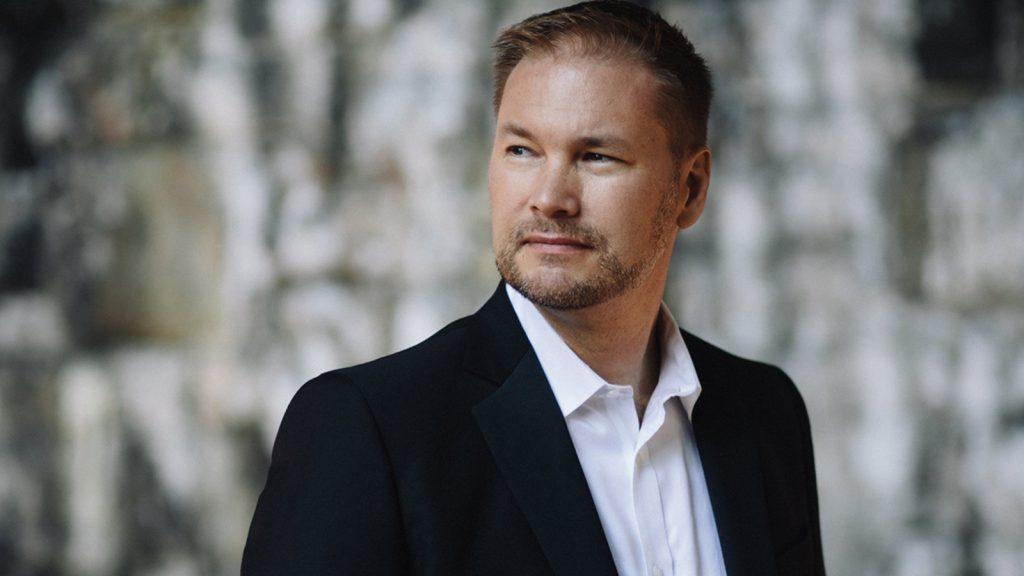A simple, story-telling “Winterreise” from Aspect Chamber Music

When Franz Schubert was composing, music was something people made together for entertainment and enlightenment and for rituals and commemorations. And the music was always new or recent—it wasn’t until the impact of Beethoven that people began to think of creating any kind of legacy or tradition preserving and revisiting music from the past.
When Schubert composed Winterreise, presented Wednesday night by the Aspect Chamber Music series at the Bohemian National Hall, he wasn’t consciously creating a masterwork of classical music or art song–he was just writing songs from poetry, in this case Wilhelm Müller, that appealed to him. They were songs to be sung to and with friends in a way not much different than how one may have a guitar and songbook handy for when people are around. Telling a story through the songs was the primary motivation.
By thinking in terms of simply relating the narrative of this winter journey, baritone Tyler Duncan and pianist Erika Switzer delivered a superb performance.
Winterreise is, of course, the most famous song cycle in classical music. Written the year before Schubert died of syphilis, the music eschews technical displays and ornamentation for articulation, characterization, and storytelling. It is the narrative of a harsh winter’s journey into loneliness, and the clearer the telling, the greater the effect.
That effect came from Duncan’s relatively affectless interpretation. Think of this as a “dry” approach, fitting in with the warm and crisp acoustic of the hall. Duncan’s baritone is on the lighter side, more Fischer-Dieskau than Matthias Goerne and his style was unmannered. Schubert sang through Winterreise for his friends, and reportedly had a light tenor voice, and hearing Duncan one could imagine how clearly the music came through with this lighter, slightly plummy sound.
When he sought emphasis, Duncan did so through phrasing, following Schubert’s naturalistic approach. When the music rose toward his upper register, he didn’t underline this as if it was operatic, but approached a crooning sound. Throughout the performance, his articulation was as fine as one has heard, every word clear and given the space to express meaning, without exaggeration.
Switzer’s accompaniment shared this interpretive view. Her pacing was apt and steady in each song, and she stuck to the notes, playing simply but not simplistically. For “Der Lindenbaum,” that meant playing the right-hand flourishes as just a musical phrase, rather than trying to create the impression of leaves rustling in the breeze. As with Duncan, she gave each note a chance to sound clearly.
One felt throughout this was a songful approach, barely a sliver away from someone playing the guitar and singing, whether it be John Dowland or Bob Dylan. It was the subtle but important and forceful distinction between displaying the voice and using the voice as vehicle for the story.
On the technical side, this gave Duncan and Switzer room to follow the changes in mood and outlook on the narrator’s winter journey and deliver a stark contrast between happy memories, illusive hopes (as in “Letzte Hoffnung” and “Die Nebensonnen”) and the emptiness of the finale, “Der Leiermann.” There, one felt a gripping sense of realism, the uncanny feeling of Schubert—who was still young—accepting the end of things.
The only moment when this approach faltered was in “Der greise Kopf.” Here the music, which is spare throughout, becomes almost minimal, and the clarity of the performance turned into severity, a series of episodic aphorisms that didn’t come together as a complete song.
But that was one out of two dozen fine examples, like the personal drama of “Erstarrung,” an intense “Rückblick” that sounded like Duncan was chasing down mercurial memories, and a delicate, simple, wonderfully articulated “Irrlicht.” That last captured the artfulness of the performance: clear, elegant, with a sophisticated understanding of what the music meant and a plain-spoken beauty in manner and expression. This was a marvelous partnership between Duncan, Switzer, and most of all Schubert.
The Hermitage Piano Trio plays Schubert and Ravel, 7:30 pm, February 3, at the Bohemian National Hall aspectmusic.net






